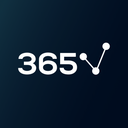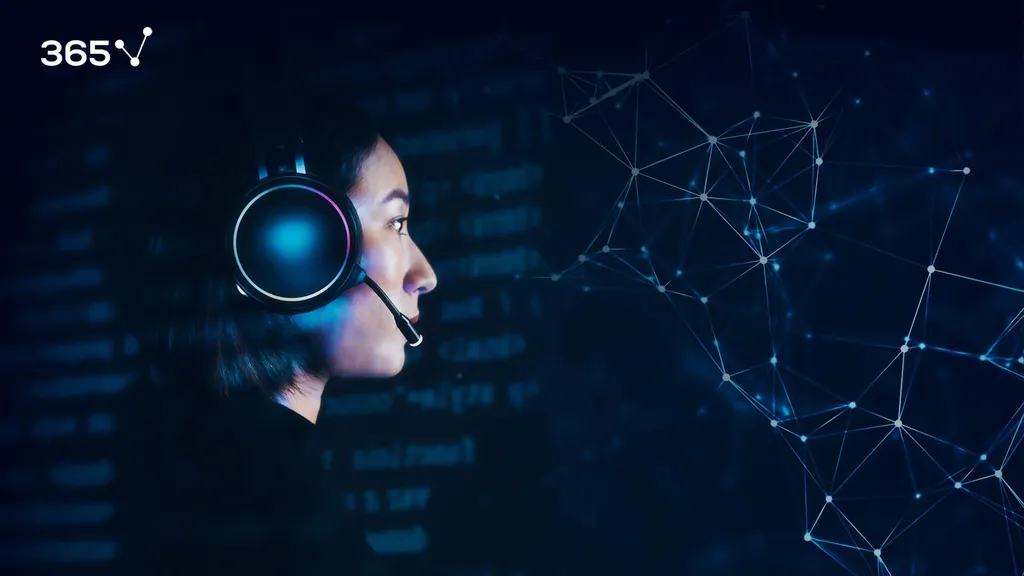
Why Transition to Data Science from Computer Science?
If you're looking for the best ways to transition into data science, some degrees can give you a massive advantage. And a degree in Computer Science certainly qualifies you for this rewarding and challenging career.
So, in this article, we’ll be making the switch from computer science and explore the steps you need to take to enter one of the hottest career fields.
We’ll answer some of the most important questions that go through your head, like: “Can I”, “Should I” and “How can I” make this switch. We’ll also discuss the pros and cons, and give you some tried-and-tested tips to transition into data science.
How to Transition to Data Science from Computer Science
Let’s start with “Can I make the switch?”
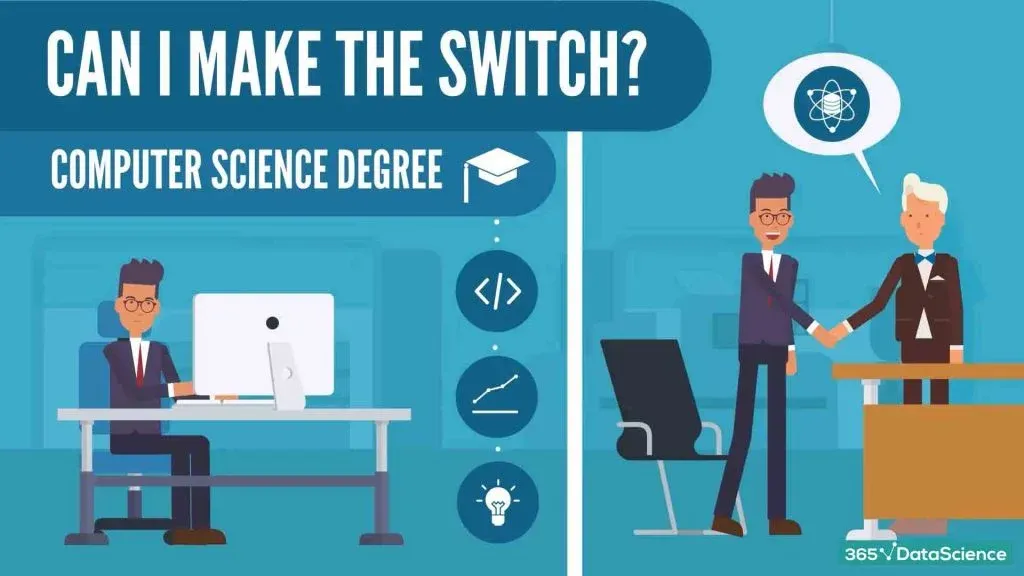
Well, if you can’t, then no one else can. A degree in Computer Science prepares you to be a code-savvy professional with strong analytical thinking, and a knack for creative tech solutions - which makes you the top choice of data science employers. Professionals with that degree have outstanding mathematics and problem-solving skills. Not to mention they are already proficient in several programming languages and tools. No wonder 18.3% of current data scientists have majored namely in Computer Science! So, let’s explore in detail the major points computer science helps you score.
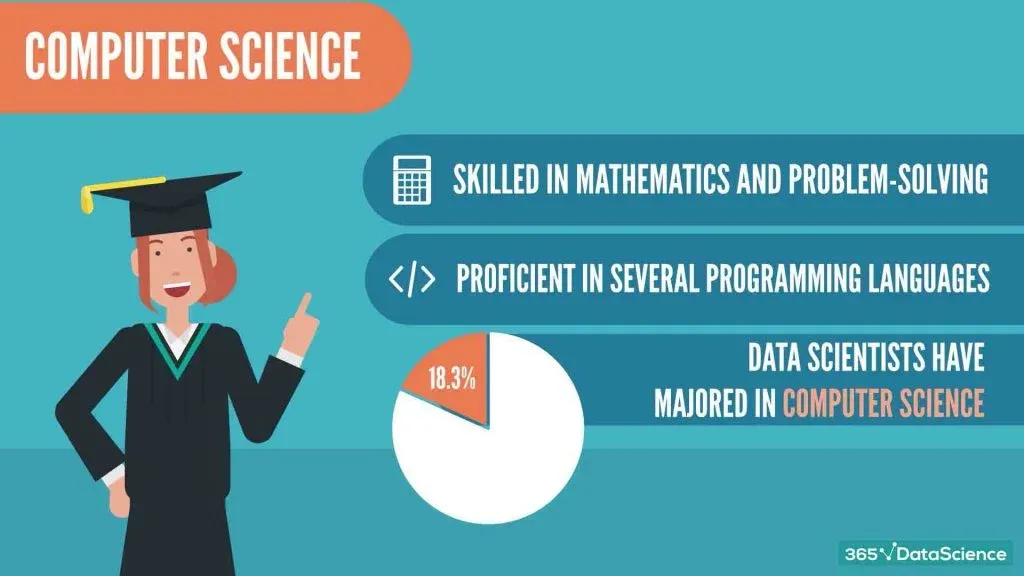
The first and the most important advantage a computer science background gives you is spectacular problem-solving skills.
Computer Scientists thrive in challenging situations. And solving complex issues is just a regular part of their lifestyle! Basically, what they do on a daily basis is identifying a problem, translating it to the computer, and finding the smartest way to deal with it. Over and over again. A Computer Science graduate rushes in and finds solutions where others fear to tread which makes them a leading figure in any data science team.
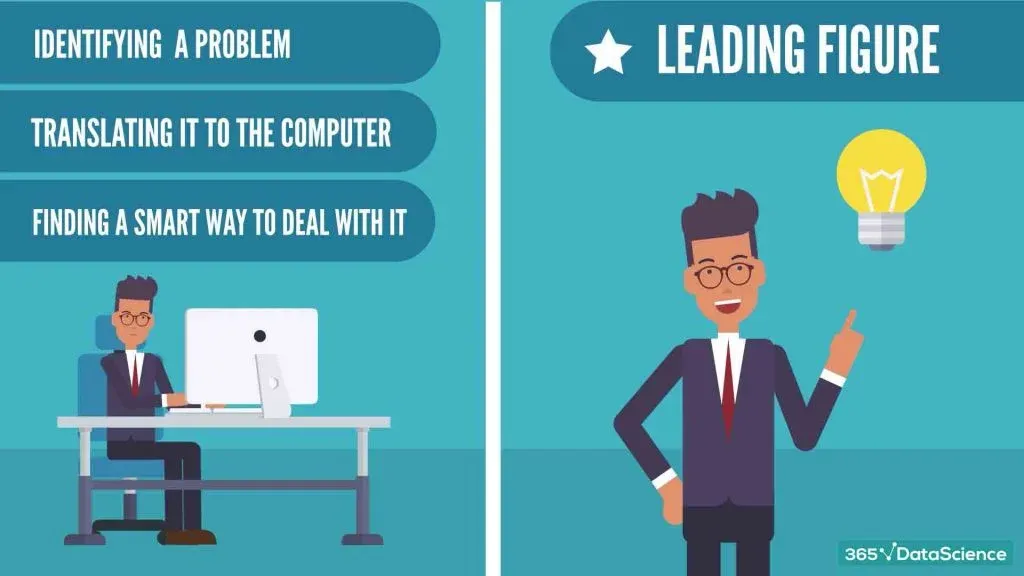
Second - writing a code that’s reusable and understandable by others.
This is one of the most precious skills for everyone working in data science. Why is that?
For one thing, it saves a lot of time for everyone involved.
If your code is very hard to follow, no one will want to use it. Especially in a fast-paced business environment where data science teammates should work like a well-oiled machine.
On the other hand, writing readable code that complies with the best practices speaks volumes. It shows you’re good at explaining your way of thinking to others, which is undeniably crucial for a data scientist working within a cross-functional team.
As a Computer Science person, you obviously know how to do that, so this box is ticked!
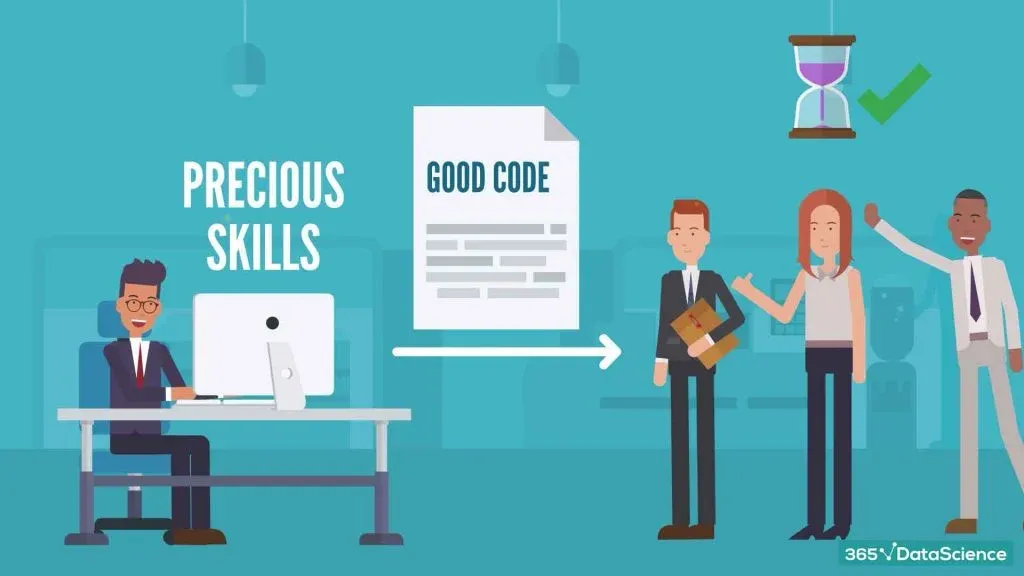
And third – having a super-versatile toolbox.
Data scientists rarely fly solo. That said, your ability to work with TTD or version control systems, like Git, for example, is indispensable to managing the code: including past changes, speed of execution, and development of the project. A data science team needs someone who knows how to monitor timelines or check if the code is labeled properly. Not many people are highly skilled at that, but a Computer Science graduate has the know-how that certainly gives them an edge.
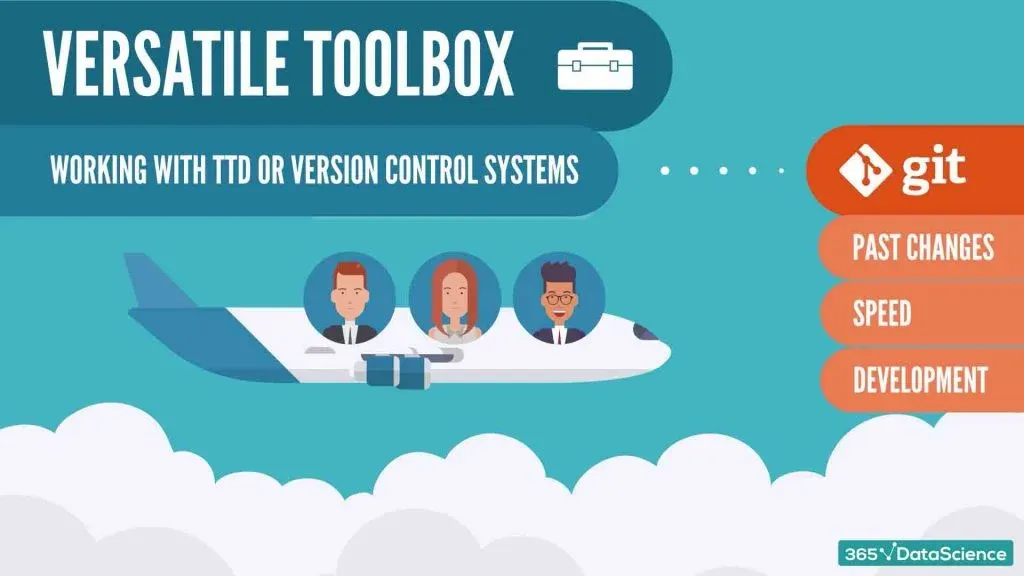
We believe now you know transitioning into data science from computer science is not a question of “Can I?” rather than “Should I?”
Should I transition to Data Science from Computer Science?
Well, every person is different and so are their career choices. Data science has been recently “discovered” and giving it a worldwide meaning seems to be a problem. Because of that, understanding the data science industry is a tough job. We might say that in most places being a data scientist will require you to work in a chaotic, continuously developing, and challenging environment.
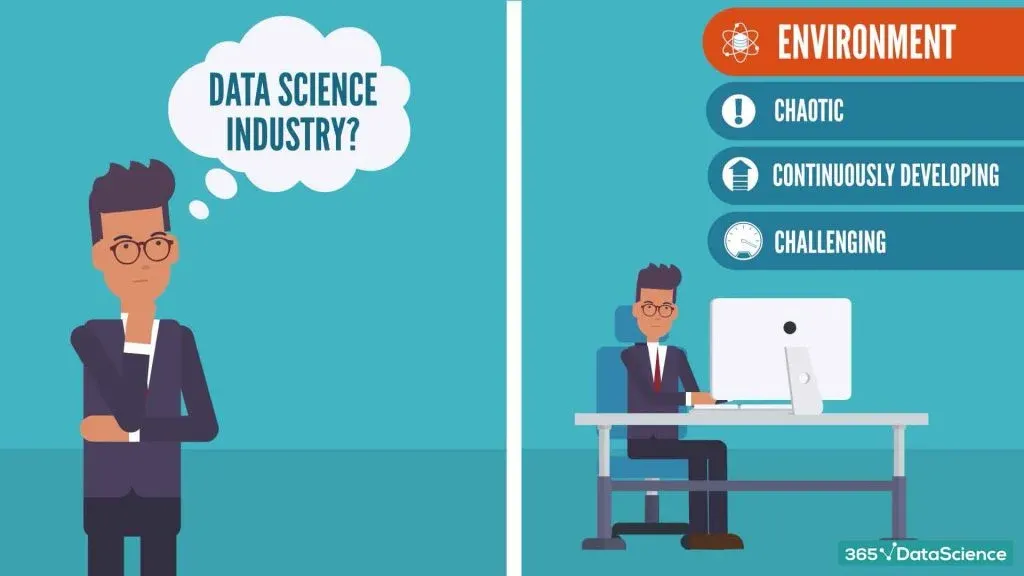
And, yes, 20 years ago, there wasn’t a Data Science job… And you may ask “Why?”
The main reason is that there wasn’t that much data to work with.
But this is not the case now. There are 2.5 quintillion bytes of data created daily and businesses are in dire need of people working on it to improve our lifestyle, health, and more… In fact, the demand for data science professionals is so high that it will be hard for the supply to catch up for many years to come! That also explains the $100,000+ median base salary and why reports like Glassdoor’s 50 Best Jobs have consistently named Data Science the winner for the past few years.
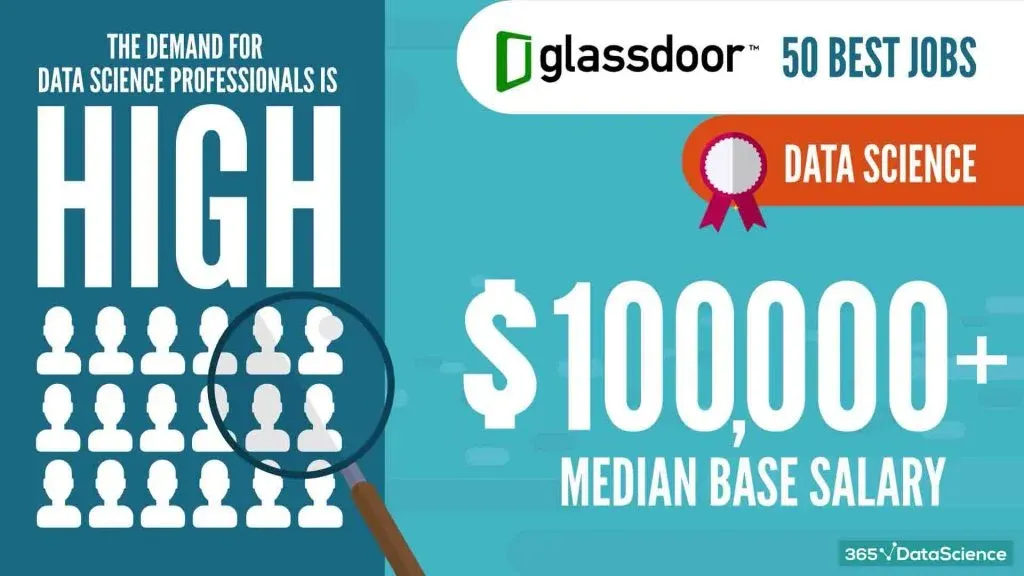
Consider this – data science today is very close to how computer science was perceived back in 2005.
Actually, data science and computer science are very similar in that they are following the same demand and supply laws… But only with a 20-year difference. So, you might as well take advantage of that before the market gets overcrowded with highly trained data scientists and salaries start to plateau.
So, how to transition to Data Science from Computer Science?
Knowing how to code has already put you on the fast track to the data scientist role. What you might miss in terms of knowledge is:
Statistics
Computer Scientists boast a deterministic mindset. This compels them to want to have all possibilities covered. And that’s great, but, to be a data scientist, you need to shift to a statistical or even better – a probabilistic mindset. Why? Well, because of how data science works - events follow distributions and there are probabilities associated with each possibility. So, that’s a whole new way of thinking to adapt to. If you're looking for a great place to start, we recommend the 365 Statistics course.
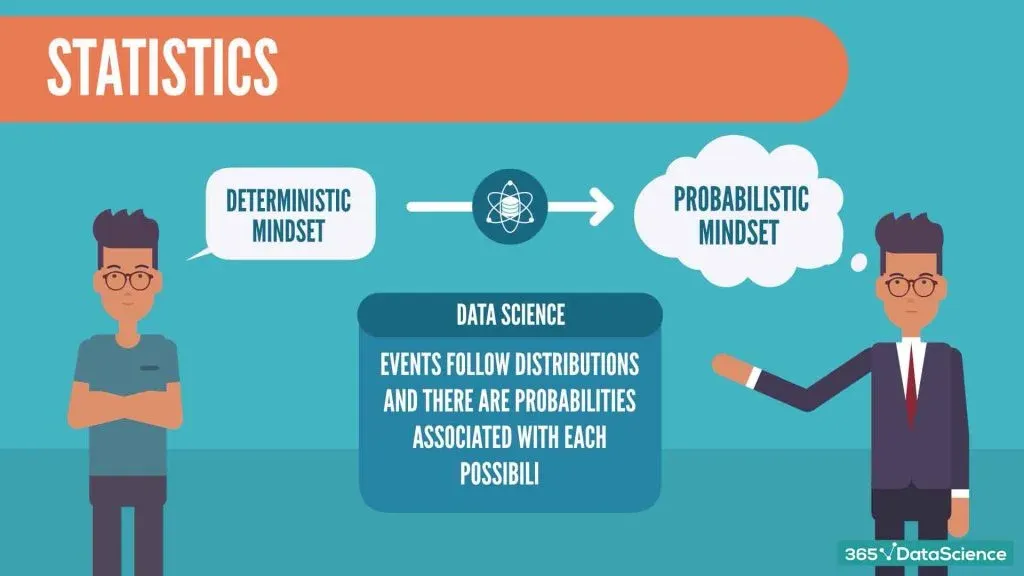
Machine and Deep learning
You guessed right - usually, the Computer Science curriculum doesn't cover these. But namely sharp predictive modeling skills and advanced deep learning techniques will give you a huge competitive edge. Fortunately, there are plenty of post-graduate qualifications and online training that will help you get there.
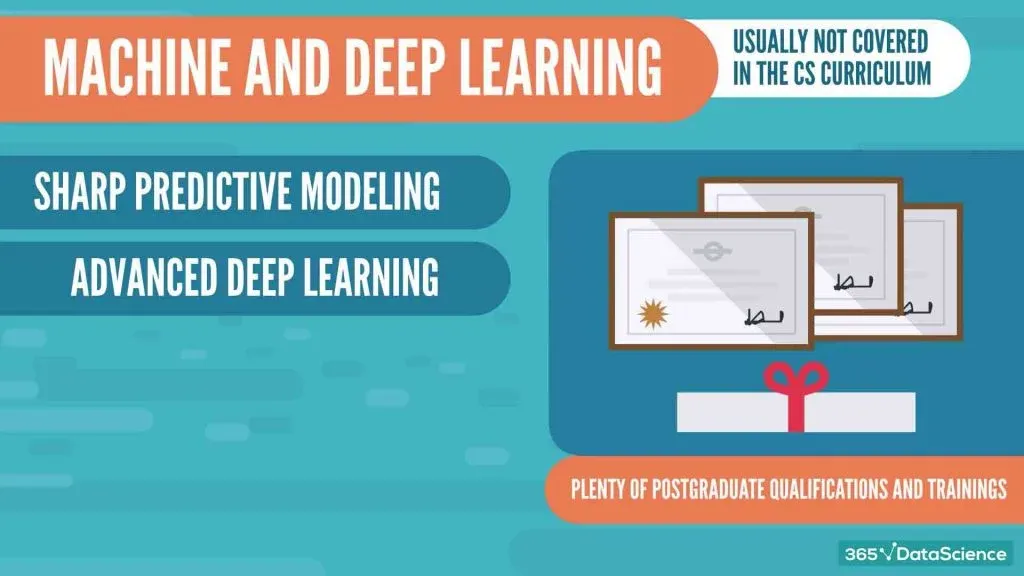
Reading research papers
Math, Statistics, and Data Science majors are very science-oriented. So, reading, understanding, and applying the technical methods in said paper is no challenge for them. But these don’t come naturally to a Computer Science graduate. Being able to apply concepts from papers is the number 1 skill demanded in top companies. That's why adding research to your reading list is certainly worth the effort.
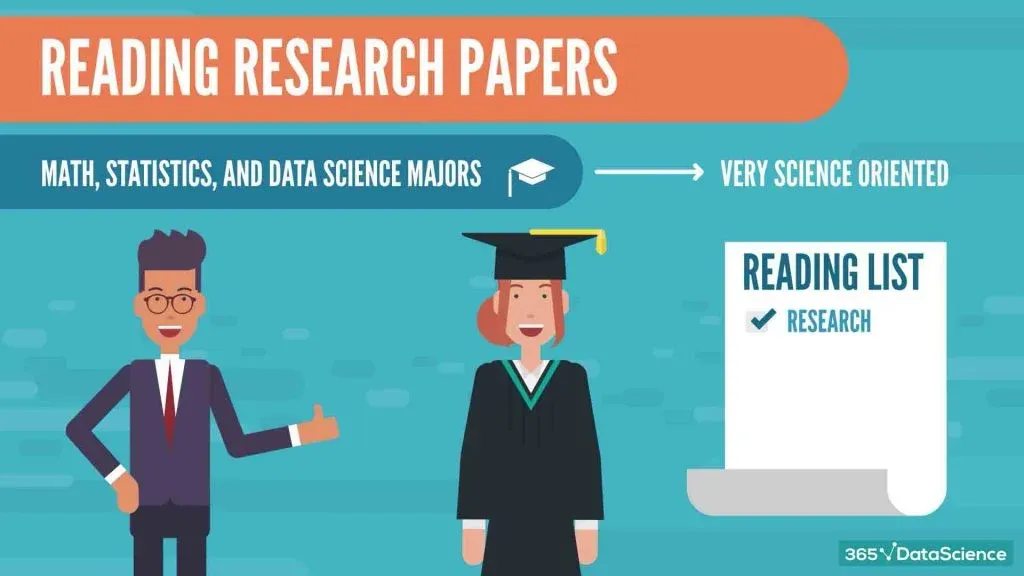
Data Visualization
Representing whole data research on just a few graphs and tables is a major component of a data scientist's work. And it’s not an easy task. So, while you may prefer to code, adding data visualization software tools like Tableau, Power BI, and Excel are a must for any data scientist. Overlooking these could be the biggest mistake of Computer Science graduates. Remember – in the business world, sometimes it is about completing a task in 5 minutes and not about writing the most parameterized code.
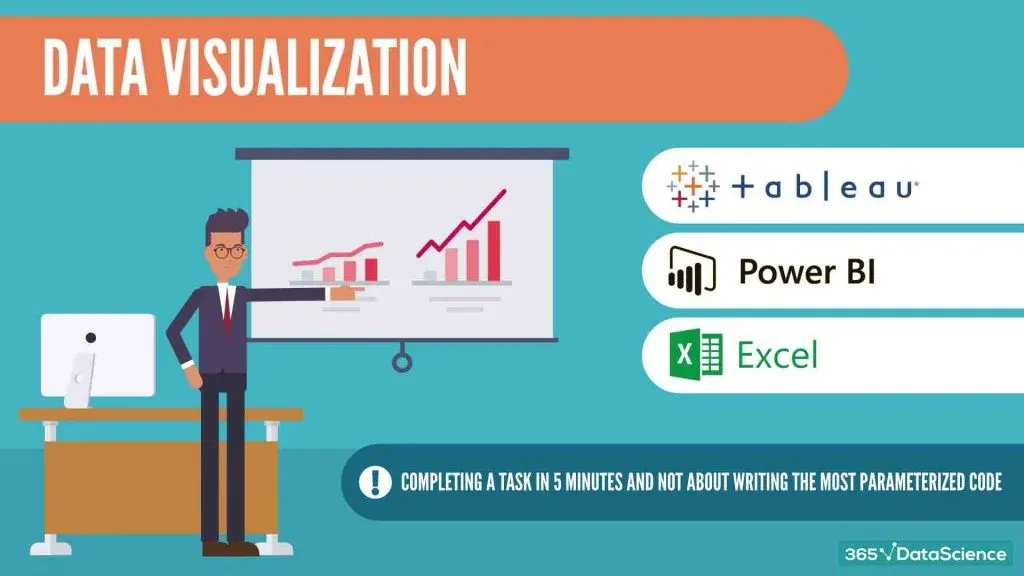
But even with these skills under your belt, data science is no easy street.
In fact, one of the biggest challenges you’ll face is working efficiently with both C-level executives and team members with various backgrounds and fields of expertise.
So, if you think that employers are only looking for top technical talent – you’re wrong. A data scientist should also be a great team player.
According to an internal study run by Google, the most inventive and effective teams within the corporation aren't the ones full of top scientists. Instead, their best performers are interdisciplinary groups with employees who bring strong soft skills to the table and enhance the collaborative process…

Which brings us to Leadership.
As a data scientist, you will not only plan projects, and build analytic systems and predictive models. You will also be the leader of a data science team. And managing a team of other data scientists, machine learning engineers, and big data specialists requires more than drive and vision.
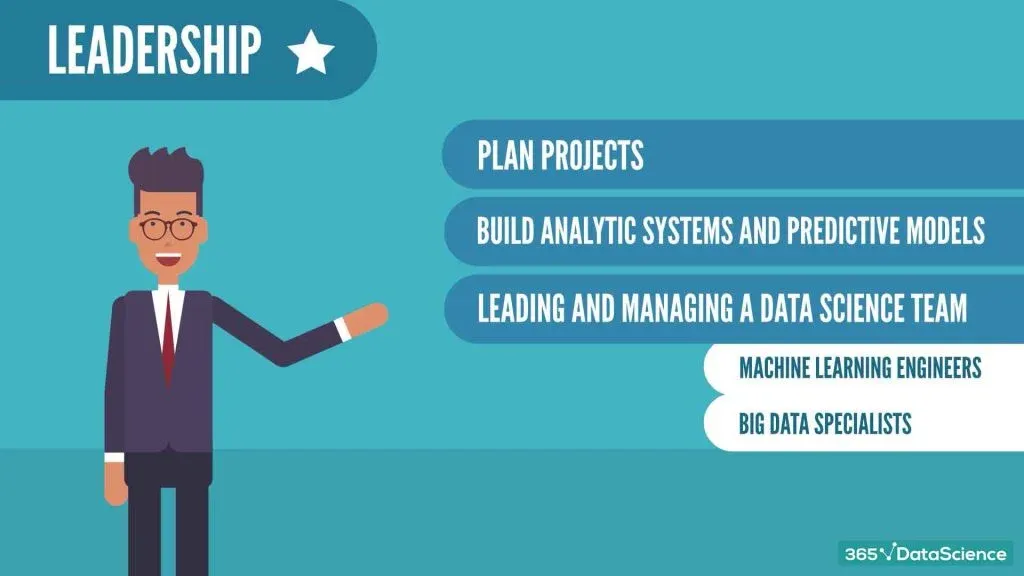
In a data science team, you can always teach others or be taught yourself, regardless of their level in the hierarchy.
So, keeping an open mind to new and challenging ideas is a must. But don’t worry if you don’t feel you’re cut out to be a leader just yet– as long as you have empathy, integrity, and the desire to listen to your team’s needs and concerns, you can grow to become an outstanding Lead Data Scientist.
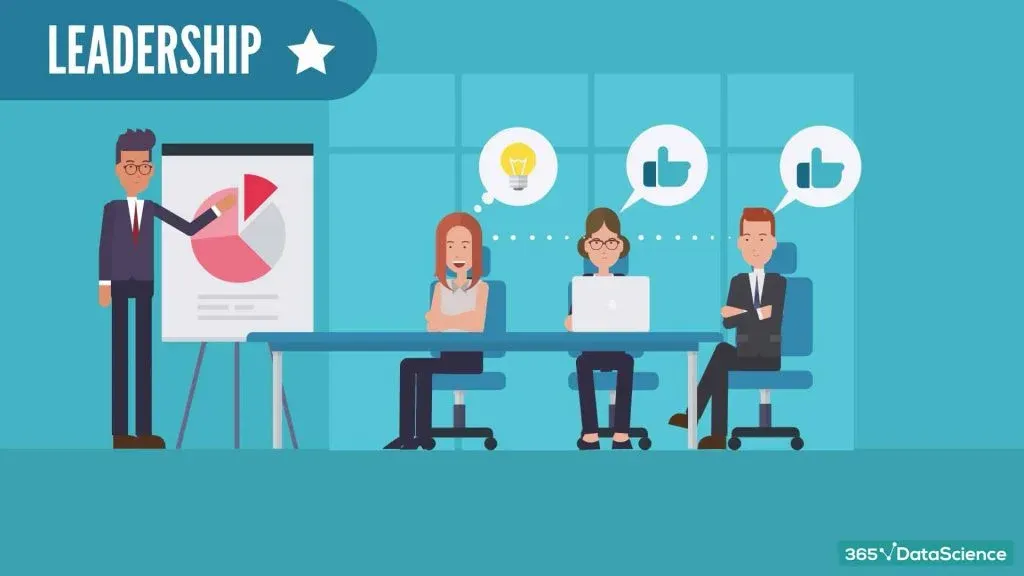
All things considered, Computer Science majors can, and should, try to pursue a career in data science because they have the necessary skills and there is high market demand. Surely, programming skills are mandatory for any data scientist. Thus, there is no doubt that you, dear Computer Science major, could be a successful one.
Ready to take the next step towards a data science career?
Check out the complete Data Science Program today. Start with the fundamentals with our Statistics, Maths, and Excel courses. Build up a step-by-step experience with SQL, Python, R, Power BI, and Tableau. And upgrade your skillset with Machine Learning, Deep Learning, Credit Risk Modeling, Time Series Analysis, and Customer Analytics in Python. Sign up for a selection of free lessons below.
